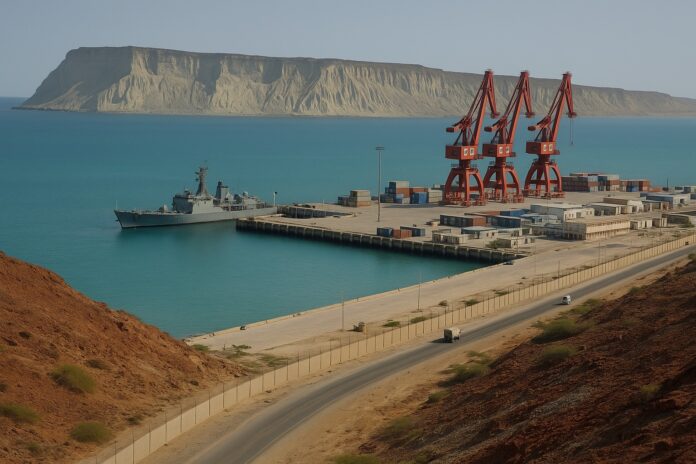Gwadar was touted as Pakistan’s “gateway to prosperity,” the crown jewel of the China-Pakistan Economic Corridor (CPEC), which would transform Balochistan and elevate the nation into global trade networks. A decade later, it stands as a stark betrayal. The port is controlled not by the people of Gwadar but by Chinese state-linked operators and Pakistan’s military elite. For ordinary residents, promises of jobs, livelihoods and basic services remain unfulfilled.
At the heart of the project is the China Overseas Ports Holding Company, which runs both the port and the adjoining free zone. Its own agreements reveal exclusive tie-ups with Pakistan’s National Logistics Cell (NLC) — a military-run enterprise. In effect, what should have been an open market for trade has become a closed circuit of Chinese contractors and Pakistani generals, siphoning profits away from the people.
Around the waterfront, the Bahria Foundation — a welfare arm of the Pakistan Navy — has entrenched itself in maritime and technical services. Each uptick in port traffic or coastal infrastructure lines the pockets of naval-linked foundations, revealing a pattern where so-called “welfare institutions” exploit strategic assets for private gain.
But for locals, Gwadar has become a cage. Movements are choked by endless checkpoints. Haq Do Tehreek protests have raged against illegal trawling that destroys fishing incomes, and against unkept promises of livelihoods. Sit-ins have paralysed roads, while Reuters and Dawn have documented violent crackdowns by state forces. To the community, the corridor is something done to them, not for them.
The much-vaunted New Gwadar International Airport is another broken promise. Though ribbon-cuttings made headlines, airlines have stayed away, and commercialisation remains stalled. For residents, the “game changer” has been a mirage.
Meanwhile, the Pakistan Navy’s footprint looms large with PNS Akram, parades and unit activity. Gwadar is less a port city and more a militarised zone where commercial rent flows to Chinese operators and strategic rent accrues to Pakistani security institutions. Fishermen, traders and small businesses are steadily pushed out.
India has consistently objected to CPEC on sovereignty grounds, given that parts of the corridor run through Indian territory in Pakistan-occupied Kashmir. Gwadar exemplifies why. What was advertised as “development” has been exposed as a geopolitical pawn — a Chinese foothold on the Arabian Sea underwritten by Pakistan’s military.
The result is stark: Gwadar does not belong to the people of Gwadar. It belongs to Beijing and Rawalpindi. Pakistan’s admirals and generals have mortgaged their coastline, their economy, and their people’s future to foreign control — betraying the very nation they claim to serve.

